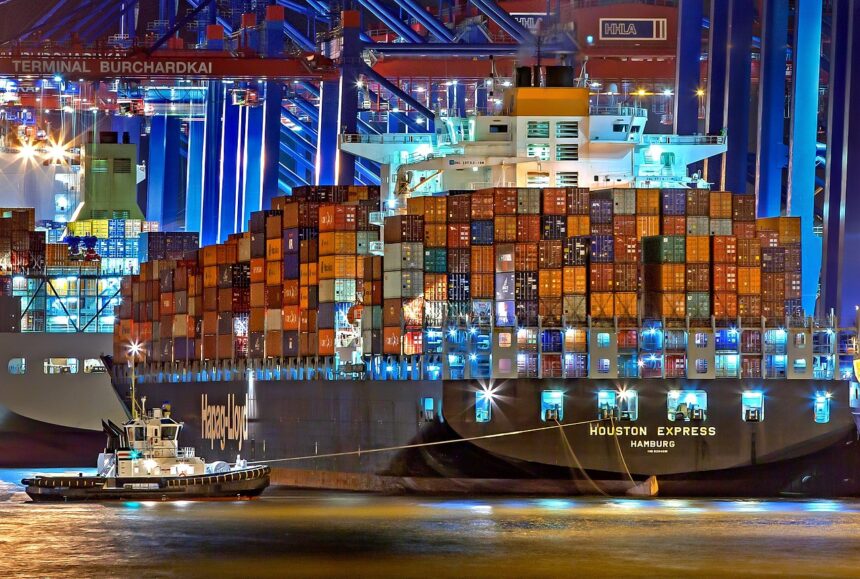The rise of e-commerce and the global marketplace has made international shipping an essential component of business success. Whether you are a small business owner or a large corporation, understanding the intricacies of international shipping can open new markets, increase sales, and elevate your brand on a global scale. This article explores the importance of international shipping in business, the challenges it presents, and strategies for overcoming them.
The Importance of International Shipping in Business
International shipping is more than just a means of delivering goods from one country to another; it is a strategic tool that can significantly impact a business’s growth and profitability. By offering international shipping options, businesses can tap into new markets, reaching customers who would otherwise be inaccessible. This global reach not only increases sales but also diversified revenue streams, reducing dependence on a single market.
Moreover, international shipping allows businesses to leverage the advantages of different economies. For example, sourcing products from countries with lower production costs and selling them in markets with higher purchasing power can create substantial profit margins. It also enables businesses to respond more flexibly to changes in demand by sourcing products from various locations.
Challenges of International Shipping
While the benefits of international shipping are undeniable, it also comes with its own set of challenges. Understanding these challenges is crucial for businesses looking to expand globally.
- Regulatory Compliance:
Navigating the complex web of international regulations is one of the biggest challenges in international shipping. Different countries have different customs regulations, import/export restrictions, and tax requirements. Failing to comply with these regulations can result in costly delays, fines, or even the seizure of goods. Businesses must stay informed about the regulations of each country they ship to and ensure that all necessary documentation is in order. - Shipping Costs:
International shipping can be expensive, especially for small businesses. Costs can vary significantly depending on factors such as the weight and size of the shipment, the destination country, and the shipping method. For example, shipping from South Africa to the UK may involve different tariffs and logistical considerations compared to other routes. Additionally, currency fluctuations can impact shipping costs, making it difficult to predict expenses accurately. Businesses need to carefully calculate shipping costs and factor them into their pricing strategy. - Delivery Times:
Longer delivery times are another challenge of international shipping. Unlike domestic shipping, which can often be completed within a few days, international shipments can take weeks to reach their destination. This can be frustrating for customers and may deter them from making a purchase. To mitigate this, businesses should provide clear information about estimated delivery times and offer expedited shipping options for customers who are willing to pay a premium for faster delivery. - Cultural Differences:
Cultural differences can also pose challenges in international shipping. For example, certain products may be prohibited or restricted in some countries due to cultural or religious reasons. Additionally, packaging and labeling requirements may vary from country to country. Businesses must be aware of these cultural differences and adapt their shipping practices accordingly to avoid offending customers or violating local regulations.
Strategies for Overcoming International Shipping Challenges
To successfully navigate the complexities of international shipping, businesses can adopt several strategies:
- Partnering with Reliable Shipping Providers:
Working with reputable shipping providers who have experience in international logistics can help businesses overcome many of the challenges associated with international shipping. These providers often offer a range of services, including customs clearance, tracking, and insurance, which can simplify the shipping process and reduce the risk of delays or losses. - Leveraging Technology:
Technology plays a crucial role in streamlining international shipping. Businesses can use shipping software to automate processes such as label generation, customs documentation, and tracking. Additionally, online platforms and marketplaces often offer integrated shipping solutions that can help businesses manage international orders more efficiently. - Offering Multiple Shipping Options:
Providing customers with a variety of shipping options can enhance the shopping experience and increase customer satisfaction. Businesses should offer both standard and expedited shipping options, allowing customers to choose the delivery speed that best suits their needs. Transparent communication about shipping costs and delivery times is also essential to manage customer expectations. - Staying Informed:
The international shipping landscape is constantly evolving, with new regulations, tariffs, and trade agreements being introduced regularly. Businesses must stay informed about these changes and adjust their shipping strategies accordingly. Subscribing to industry newsletters, attending trade shows, and consulting with logistics experts can help businesses stay ahead of the curve.
Conclusion
International shipping is a critical component of global business success. While it presents challenges, the benefits of reaching new markets, diversifying revenue streams, and enhancing brand visibility far outweigh the obstacles. By understanding the intricacies of international shipping and adopting strategies to overcome its challenges, businesses can unlock new opportunities and thrive in the global marketplace. As the world continues to become more interconnected, mastering international shipping will remain a key to sustaining and growing a successful business.


